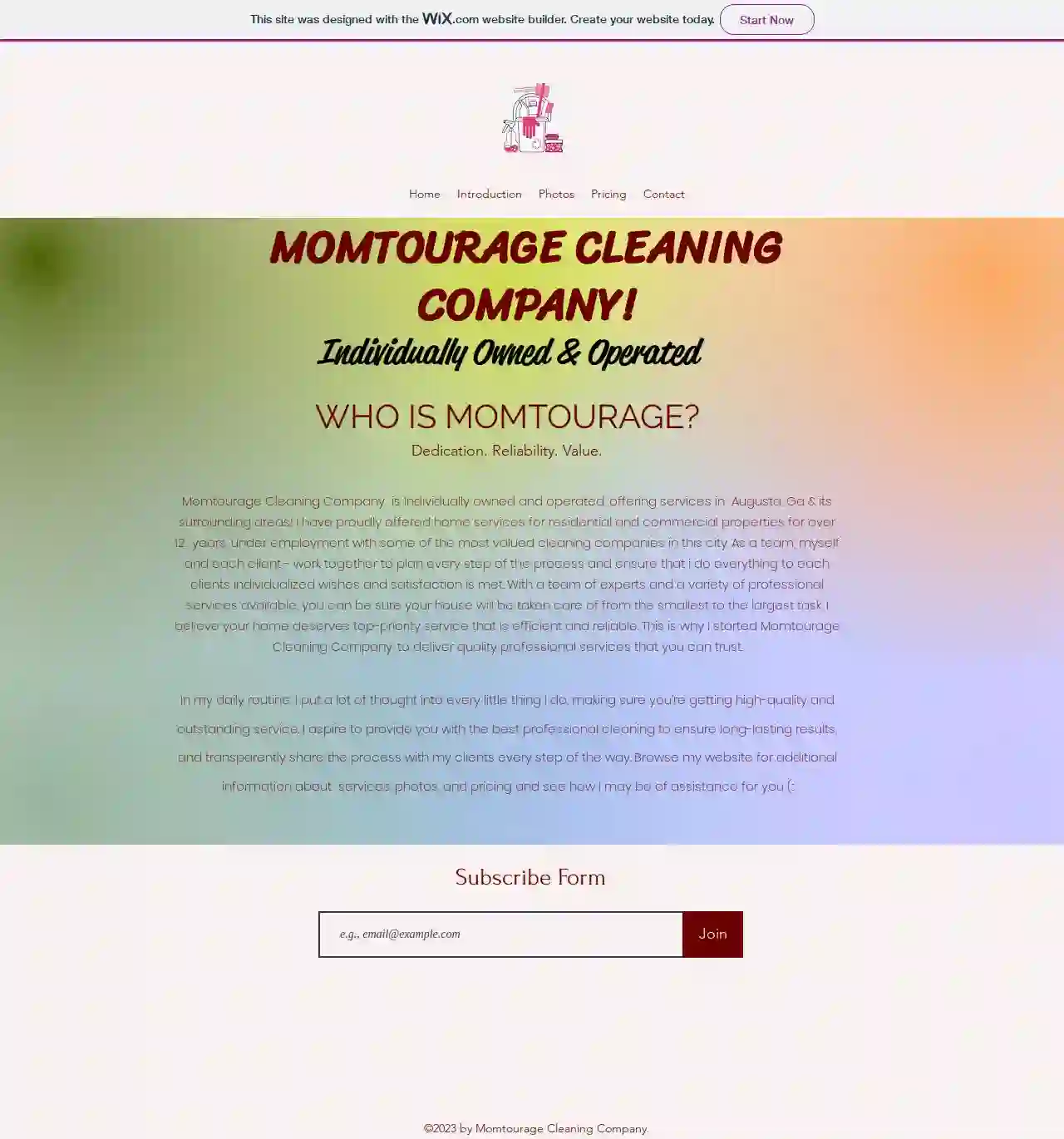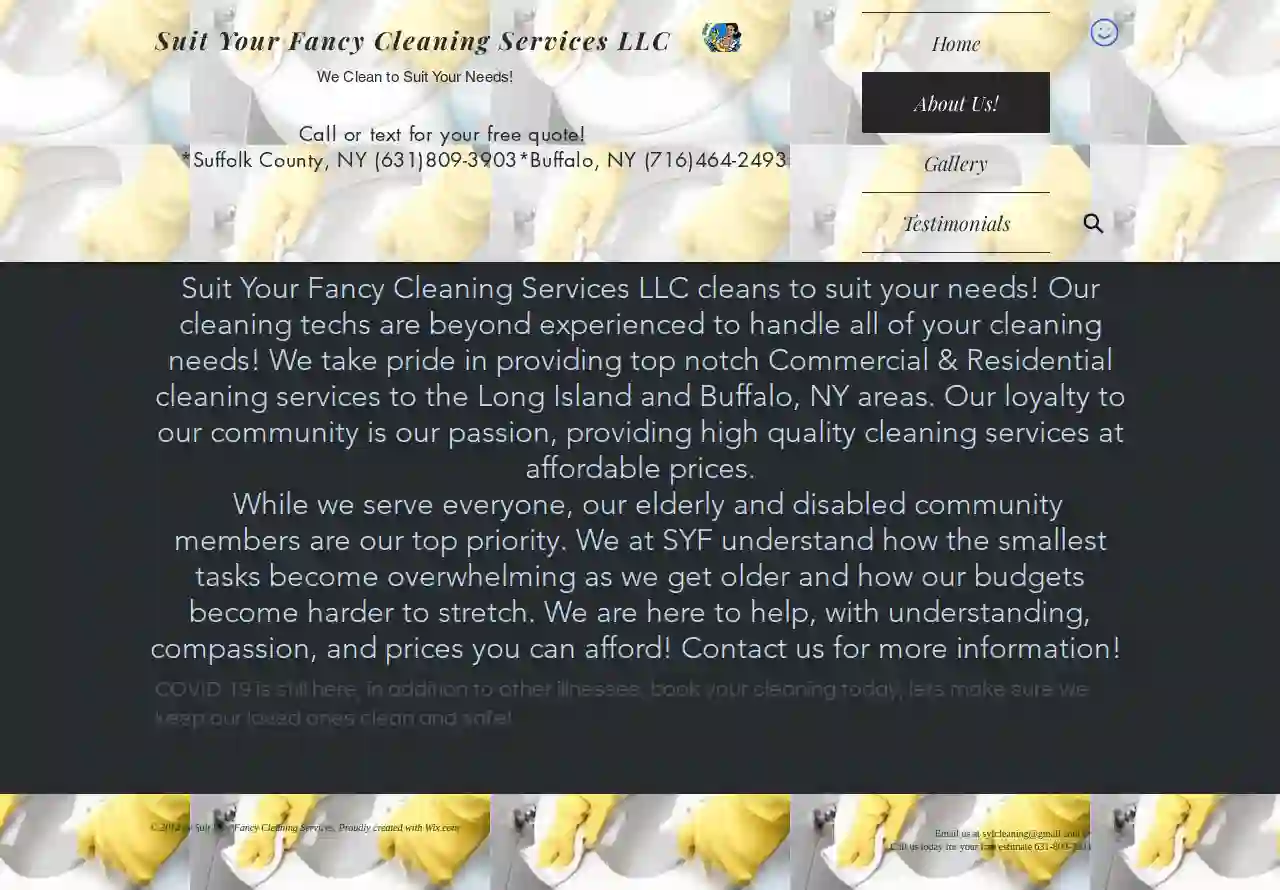Cleaning Services Lilburn
Top 10 Cleaning Services in Lilburn
Get up to 3 Cleaning quotes for your project today! Compare profiles, reviews, accreditations, portfolio, etc... and choose the best service.
Service Needed
City or Town

eMaids Cleaning Service Atlanta
4.394 reviewsAtlanta, US- Services
- Why Us?
Get Quote
Momtourage Cleaning Company
52 reviewsAugusta, US- Services
- Why Us?
Get Quote- Ge
Georgia Hatters & Cleaners
4.211 reviewsAugusta, US- Services
- Why Us?
Get Quote 
Suit Your Fancy Cleaning Services LLC
51 reviewsAtlanta, US- Services
- Why Us?
Get Quote
Georgia Commercial Maintenance And Cleaning Service
52 reviewsAtlanta, US- Services
- Why Us?
Get Quote
Merry Maids of Gainesville
3.623 reviewsGainesville, US- Services
- Why Us?
Get Quote
Imbue Cleaning Solutions LLC
4.8187 reviewsAugusta, US- Services
- Why Us?
Get Quote
Revive & Restore Cleaning Service
4.8350 reviewsAugusta, US- Services
- Why Us?
Get Quote
Wipex Solutions LLC
55 reviewsAtlanta, US- Services
- Why Us?
Get Quote
The Cleaning Authority - Columbus
4.6148 reviewsColumbus, US- Services
- Why Us?
Get Quote
Over 60,241+ Janitorial Companies registered
Our janitorial contractors operate in Lilburn and surroundings!
CleaningMatch has curated and vetted the Best Cleaning Companies near Lilburn. Find a trustworthy business today.
Frequently Asked Questions About Cleaning Services
Find answers to common questions about cleaning services and hiring cleaning companies in the USA.
- Experience: 'How long have you been in business, and what type of cleaning services do you specialize in?'
- Licensing and Insurance: 'Are you licensed, insured, and bonded? Can I see proof of coverage?'
- Background Checks: 'Do you conduct background checks on your employees?'
- Cleaning Supplies: 'Do you provide your own cleaning supplies and equipment, or should I provide them?'
- Cleaning Methods: 'What cleaning methods and products do you use?'
- References: 'Can you provide references from previous clients?'
- Scheduling and Availability: 'What days and times are you available for cleaning?'
- Pricing and Payment: 'What is your pricing structure, and what payment methods do you accept?'
- Cancellation Policy: 'What is your cancellation policy?'
- Satisfaction Guarantee: 'Do you offer a satisfaction guarantee? What happens if I'm not happy with the service?'
- Communicate clearly: Before the cleaning, communicate your expectations and any specific cleaning requirements. Provide a list of areas you want them to focus on or any tasks you want them to prioritize.
- Provide access: Ensure the cleaners have access to all the areas that need cleaning. Unlock doors, clear clutter, and provide any necessary instructions.
- Walk through after cleaning: Once the cleaning is complete, do a walk-through with the cleaners to inspect their work. Address any concerns or areas that need attention.
- Provide feedback: Give the cleaning service feedback on their performance. Let them know what you were happy with and any areas they can improve.
- Build a relationship: Establish a good relationship with the cleaning service by communicating openly, treating them with respect, and providing clear instructions.
- Check Fabric Care Label: Always check the upholstery care label for cleaning instructions specific to the fabric. Some fabrics may require professional cleaning.
- Vacuum: Vacuum the upholstery thoroughly to remove dust and loose debris. Use a brush attachment for crevices and seams.
- Spot Cleaning: For stains, blot with a clean cloth or sponge. Avoid rubbing, as it can spread the stain. Use a mild upholstery cleaner or a homemade solution of water and mild dish soap.
- Upholstery Cleaning Machine: If the fabric is suitable for wet cleaning, you can use an upholstery cleaning machine. Follow the machine's instructions carefully and test a small, hidden area first.
- Professional Upholstery Cleaning: For delicate fabrics, deep cleaning, or stubborn stains, consider hiring a professional upholstery cleaning service. They have specialized knowledge and equipment to clean upholstery safely and effectively.
- Regular Sweeping or Dust Mopping: Sweep or dust mop hardwood floors daily to remove dust, dirt, and debris.
- Vacuuming: Vacuum hardwood floors weekly using a vacuum cleaner with a hardwood floor attachment to avoid scratches.
- Damp Mopping: Damp mop hardwood floors with a hardwood floor cleaner as needed. Avoid excessive water, as it can damage the wood.
- Prevent Scratches: Place felt pads under furniture legs to prevent scratches. Avoid dragging heavy objects across the floor.
- Avoid Harsh Cleaners: Do not use harsh chemicals, abrasive cleaners, or furniture polish on hardwood floors.
- Professional Cleaning: Consider hiring a professional hardwood floor cleaning service for deep cleaning and refinishing as needed.
What should I ask a cleaning service before hiring them?
Before hiring a cleaning service, consider asking these questions to ensure they meet your requirements and expectations:
By asking these questions, you can assess their professionalism, reliability, and suitability for your cleaning needs.
By asking these questions, you can assess their professionalism, reliability, and suitability for your cleaning needs.
How can I make sure my cleaning service does a good job?
To ensure a satisfactory cleaning service, follow these tips:
Clear communication, a thorough inspection, and constructive feedback are key to getting the best results from your cleaning service.
Clear communication, a thorough inspection, and constructive feedback are key to getting the best results from your cleaning service.
How do I clean upholstery without damaging the fabric?
Cleaning upholstery requires care to avoid damaging delicate fabrics. Follow these steps:
Always test any cleaning solution on a small, inconspicuous area first to avoid discoloration or damage.
Always test any cleaning solution on a small, inconspicuous area first to avoid discoloration or damage.
What are some tips for cleaning hardwood floors?
Hardwood floors add elegance and warmth to a home, but they require proper care to maintain their beauty. Here are some tips:
By following these tips, you can keep your hardwood floors looking beautiful for years to come.
By following these tips, you can keep your hardwood floors looking beautiful for years to come.
What should I ask a cleaning service before hiring them?
Before hiring a cleaning service, consider asking these questions to ensure they meet your requirements and expectations:
By asking these questions, you can assess their professionalism, reliability, and suitability for your cleaning needs.
- Experience: 'How long have you been in business, and what type of cleaning services do you specialize in?'
- Licensing and Insurance: 'Are you licensed, insured, and bonded? Can I see proof of coverage?'
- Background Checks: 'Do you conduct background checks on your employees?'
- Cleaning Supplies: 'Do you provide your own cleaning supplies and equipment, or should I provide them?'
- Cleaning Methods: 'What cleaning methods and products do you use?'
- References: 'Can you provide references from previous clients?'
- Scheduling and Availability: 'What days and times are you available for cleaning?'
- Pricing and Payment: 'What is your pricing structure, and what payment methods do you accept?'
- Cancellation Policy: 'What is your cancellation policy?'
- Satisfaction Guarantee: 'Do you offer a satisfaction guarantee? What happens if I'm not happy with the service?'
By asking these questions, you can assess their professionalism, reliability, and suitability for your cleaning needs.
How can I make sure my cleaning service does a good job?
To ensure a satisfactory cleaning service, follow these tips:
Clear communication, a thorough inspection, and constructive feedback are key to getting the best results from your cleaning service.
- Communicate clearly: Before the cleaning, communicate your expectations and any specific cleaning requirements. Provide a list of areas you want them to focus on or any tasks you want them to prioritize.
- Provide access: Ensure the cleaners have access to all the areas that need cleaning. Unlock doors, clear clutter, and provide any necessary instructions.
- Walk through after cleaning: Once the cleaning is complete, do a walk-through with the cleaners to inspect their work. Address any concerns or areas that need attention.
- Provide feedback: Give the cleaning service feedback on their performance. Let them know what you were happy with and any areas they can improve.
- Build a relationship: Establish a good relationship with the cleaning service by communicating openly, treating them with respect, and providing clear instructions.
Clear communication, a thorough inspection, and constructive feedback are key to getting the best results from your cleaning service.
How do I clean upholstery without damaging the fabric?
Cleaning upholstery requires care to avoid damaging delicate fabrics. Follow these steps:
Always test any cleaning solution on a small, inconspicuous area first to avoid discoloration or damage.
- Check Fabric Care Label: Always check the upholstery care label for cleaning instructions specific to the fabric. Some fabrics may require professional cleaning.
- Vacuum: Vacuum the upholstery thoroughly to remove dust and loose debris. Use a brush attachment for crevices and seams.
- Spot Cleaning: For stains, blot with a clean cloth or sponge. Avoid rubbing, as it can spread the stain. Use a mild upholstery cleaner or a homemade solution of water and mild dish soap.
- Upholstery Cleaning Machine: If the fabric is suitable for wet cleaning, you can use an upholstery cleaning machine. Follow the machine's instructions carefully and test a small, hidden area first.
- Professional Upholstery Cleaning: For delicate fabrics, deep cleaning, or stubborn stains, consider hiring a professional upholstery cleaning service. They have specialized knowledge and equipment to clean upholstery safely and effectively.
Always test any cleaning solution on a small, inconspicuous area first to avoid discoloration or damage.
What are some tips for cleaning hardwood floors?
Hardwood floors add elegance and warmth to a home, but they require proper care to maintain their beauty. Here are some tips:
By following these tips, you can keep your hardwood floors looking beautiful for years to come.
- Regular Sweeping or Dust Mopping: Sweep or dust mop hardwood floors daily to remove dust, dirt, and debris.
- Vacuuming: Vacuum hardwood floors weekly using a vacuum cleaner with a hardwood floor attachment to avoid scratches.
- Damp Mopping: Damp mop hardwood floors with a hardwood floor cleaner as needed. Avoid excessive water, as it can damage the wood.
- Prevent Scratches: Place felt pads under furniture legs to prevent scratches. Avoid dragging heavy objects across the floor.
- Avoid Harsh Cleaners: Do not use harsh chemicals, abrasive cleaners, or furniture polish on hardwood floors.
- Professional Cleaning: Consider hiring a professional hardwood floor cleaning service for deep cleaning and refinishing as needed.
By following these tips, you can keep your hardwood floors looking beautiful for years to come.